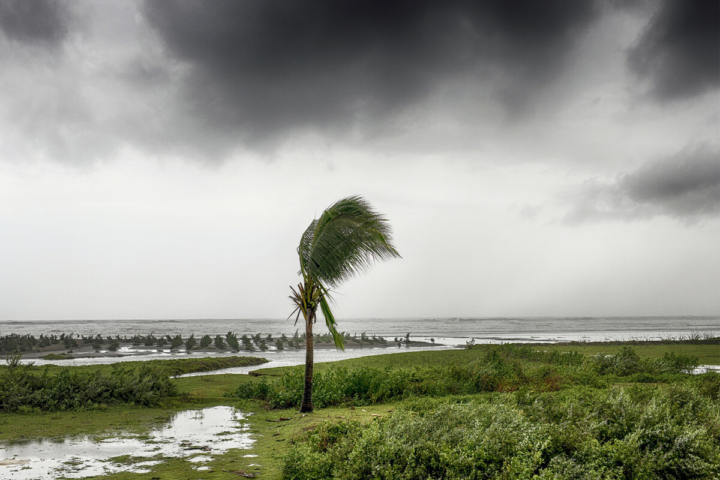Sophie Walsh on how leaders can build preparedness, manage uncertainty and also seize positive opportunities in a fast-changing world – such as the new generation of employees eager to see their values reflected in their work.
This post has also been published on Oxfam’s Views and Voices blog.
What should leaders of international NGOs such as Oxfam do to mitigate the seemingly ever-growing risks that their organisations face? What should they prioritise?
We’ve recently conducted an analysis of external risks and opportunities for Oxfam that outlines how leaders can help organisations build resilience in such uncertain times. In this blog, I want to share four broad themes that have emerged.
- Build your general preparedness and learn from your mistakes
Instead of focusing just on what can go wrong – with so many possible crises, it is going to be impossible to plan for everything – it is more effective for organisational leadership to understand and be ready to implement what they will do in general when things do go wrong. Most crises have similar categories of consequence, for example, there is usually a financial element that may involve fines, or a tightening of the purse strings.There is usually a reputational element, which may involve negative press and a need to decide whether to proactively rebut or whether to show humility and admit it could have done better. There can also be, in particular for INGOs, an element of falling short of expectations, whether that’s towards staff or those that the organisation engages with.An organisation should have a well-rehearsed preparedness approach to tackle all of these elements. Which key stakeholders will come together? What will the process be to respond to the media? How will you put in place short-term controls to mitigate any further damage? Of course, organisations will also need to still prepare specific responses to some issues where the risk is well known, such as a large-scale cyber-attack. But preparedness doesn’t stop there. When things do go wrong, it’s crucial for organisations to analyse what happened.Could the control frameworks have been stronger? Do you need to change processes, controls, approvals, delegations, or a policy? All this can be done in advance of a crisis.
- Build your ability to cope with uncertainty: trust your employees to do what’s best
All organisations are grappling with significant uncertainty, significant uncertainty, from climate shocks, global and political economic uncertainty and the global food and supply chain crises, to rising energy costs and the cost-of-living crisis.
A key plank of managing this will be the good preparedness approach above, but there is more. One thing I would highlight is the importance of managing by trusting and enabling others. Research shows leaders who trust and empower their teams unleash powerful potential. Compared to employees at low-trust companies, those working for high -trust companies report less stress, more energy at work, higher productivity, and more satisfaction with their lives and less burnout, according to Paul J. Zak’s “The Neuroscience of Trust” in the Harvard Business Review. Leaders cannot react to everything at the sharp end of what their organisations do: rather than top-down instructions, they need to trust the people closest to uncertainty and change to understand and react in the best way.
There is a wider point here about leaders admitting not always knowing what is best. That means showing humility and being honest and open to dialogue about controversial and challenging issues that are faced by global organisations. It is only through self-reflection and a willingness to engage openly and curiously with external criticism and with experts that challenges can be overcome, risks mitigated, and opportunities optimised.
- Understand the changing legal, regulatory and technological demands
In the UK and elsewhere, there is a ratcheting up of legislative requirements and guidelines and increasing enforcement in that area. For INGOs who campaign on social and environmental issue, there is also the risk that breaching environmental, rights or corporate responsibility rules impacts their reputation and undermine their effectiveness. Alongside the rising legal demands, large NGOs also need to take a hard look at their investment in technology and mitigating the risks it brings. Arguably, many are facing a “technology debt” through having underinvested in technology in comparison with other organisations. That might for example leave them less prepared to tackle the extra risks posed by things like remote working, which may for example bring extra cyber security risks. Any plan to tackle risks will need to assess the size of this technology debt and how it can be cleared. - Get ready for the positive changes happening in the next generation of workersA recent survey by consultancy firm PwC, Global Workforce Hopes and Fears, looked at more than 52,000 workers in 44 countries and territories. It found job fulfilment and the ability to be one’s true self at work were major reasons cited for people quitting their jobs. Generation Z are also now entering the workforce and have a much stronger focus on values and want to see them reflected in their workplace. This clearly provides more opportunity to INGOs working to build a better world to recruit more of the best and most talented people. Alongside this is the vast expansion of the global talent and recruitment pool available to organisations as technology removes the restrictions on location of your employees. This also enables recruitment of more people from the communities where many INGOs work and will speed up the shifting of power to the global south.
Leaders that have the right mindset and values
In addressing all four areas above, leaders will need to demonstrate they have the right mindset and values to cope with change and uncertainty. They will need to truly demonstrate a change in attitudes from traditional, hierarchical ways of doing things – showcasing values-led behaviour through having difficult conversations honestly whilst showing humility. This will mean leaders saying to teams ‘I got it wrong’ or a simple ‘I don’t know’. Demonstrating such honesty can go a long way to cementing the commitment of the workforce to making the desired changes. The world is changing, and INGO leaders need to change too.

The start of a cyclone in 2020 that hit Cox’s Bazar refugee camp in Bangladesh, where Oxfam provides key water, sanitation, and other support for refugees. Climate shocks are just one of an array of global risks that NGOs must manage today. (picture: Fabeha Monir/Oxfam)
Author: Sophie Walsh is Deputy Director of Integrity and Ethics at Oxfam GB.
Find out more: You can read Sophie’s full analysis of risks and opportunities for leaders here.

